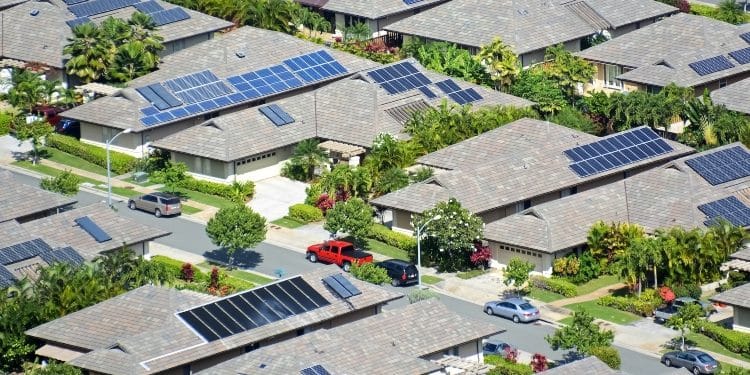Sustainability is a primary concern for consumers in the UK right now. Indeed, in 2020, 85 per cent of consumers adopted at least one lifestyle change to be more sustainable last year. One area where you can make a lifestyle change is in the energy that heats your home. Indeed, generating your own energy through solar panels for your home is just one strategy you can consider. Below, we explore how you can use renewable energy and what the benefits might be.
What home renewable options are there?
There are plenty of different methods for powering your home with renewable energy. Wherever you’re located, there are likely to be renewable solutions that can work for you. Solar power can work well if your roof receives plenty of sunlight during daylight hours. Meanwhile, pole-mounted wind turbines can save you hundreds of pounds a year on your energy bills. Furthermore, if you want to overhaul your heating system in a sustainable way, an air source heat pump can heat your home in an efficient manner with a lower carbon footprint.
What are the benefits?
There are plenty of benefits to renewable energy. And one of the key benefits is that it can save you money. Before April, the average household’s energy bill was £1,277 a year. However, this January, the same bill could rise to as much as £4,650. In this context, it’s crucial to save money on your bill – and using renewable sources of energy can help lower your reliance on energy companies.
Return on investment
Another benefit is that you can see a return on your renewable energy investment too. When it comes to selling your home, you’ll find that its value will increase if it has sources of renewable energy. And if you want to use your home for years to come, your return will come through lower energy bills.
Downsides
There are some downsides though. If your home doesn’t get much sun or wind, renewable energy sources might prove to be inefficient. Getting the most out of your renewable energy will therefore require plenty of careful planning.
Environmental impact
Renewable energy also has a significantly lower environmental impact than traditional energy sources. Wind turbines and solar panels draw their energy from the wind and sun. This means they produce zero carbon emissions, whereas energy sources that draw upon fossil fuels contribute significantly toward climate change.
Renewable energy can bring many benefits to your home. By considering the benefits, downsides and environmental impact listed above, you should be ready to make a decision on how best to power your home.
David Prior
David Prior is the editor of Today News, responsible for the overall editorial strategy. He is an NCTJ-qualified journalist with over 20 years’ experience, and is also editor of the award-winning hyperlocal news title Altrincham Today. His LinkedIn profile is here.


![7 Best POS Software in the UK [2026 Edition]](https://todaynews.co.uk/wp-content/uploads/2026/02/7-Best-POS-Software-in-the-UK-2026-Edition-360x180.png)










































































